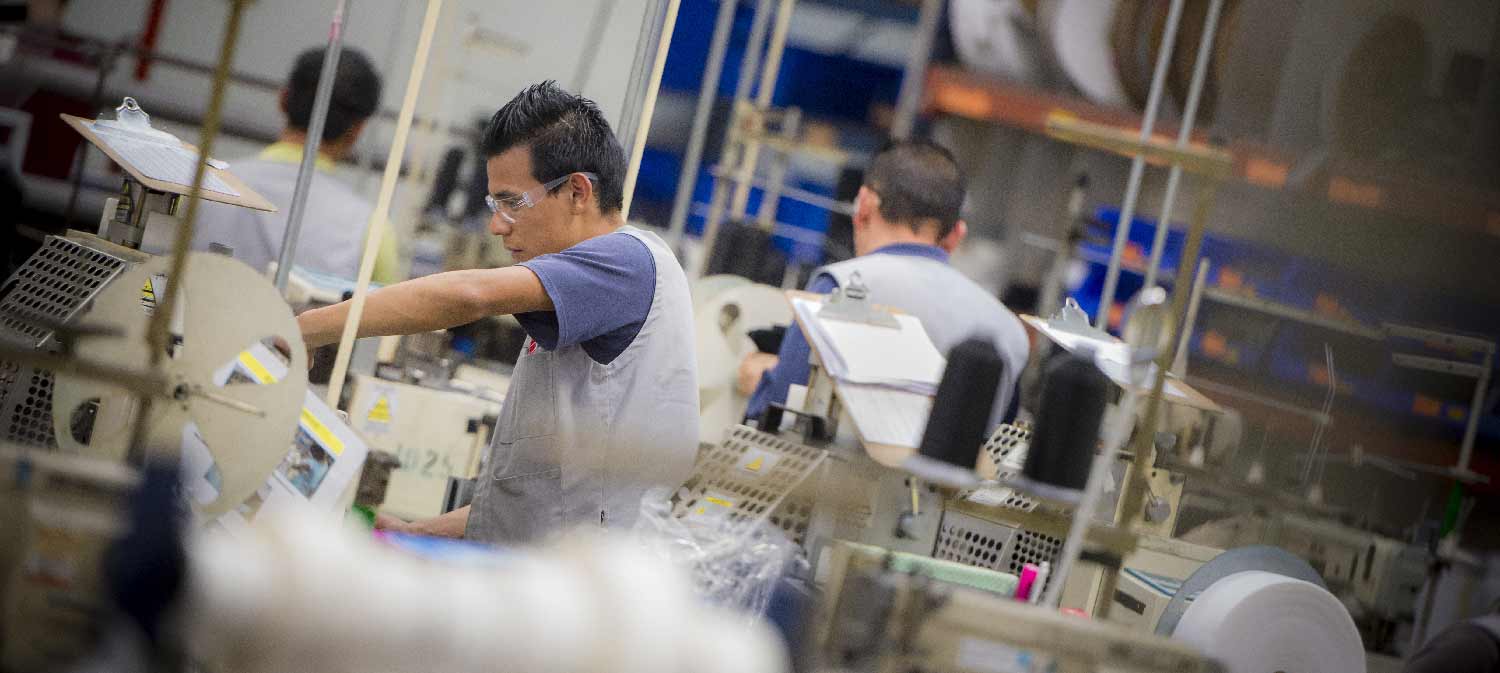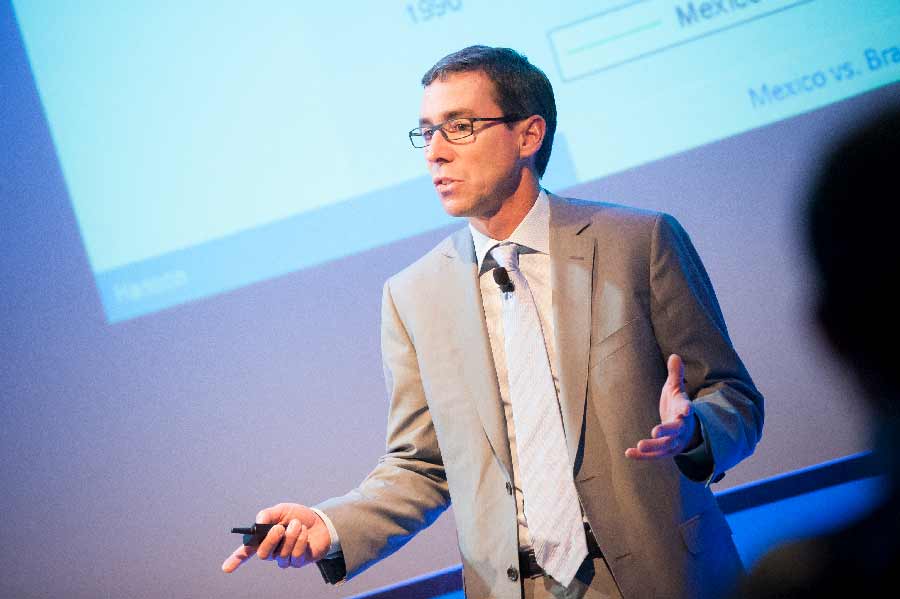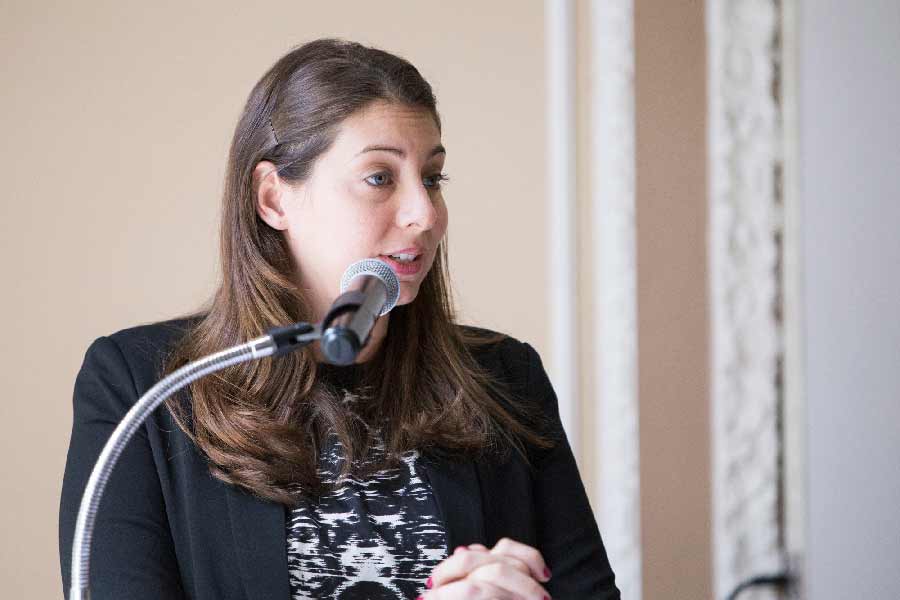By:
- Anthony King
Published Date
By:
- Anthony King
Share This:

Photo by Erik Jepsen/UC San Diego Publications
NAFTA Under Siege
UC San Diego Center for U.S.-Mexican Studies to host timely dialogue on the future of the North American partnership
As the current administration continues to call out perceived pitfalls of the North American Free Trade Agreement, or NAFTA, trade experts, business leaders, former government officials and current policymakers will gather at UC San Diego to lead timely and important conversations on the likely consequences of revoking or renegotiating the trade agreement.
Hosted by the Center for U.S.-Mexican Studies, “Conversations on the Future of the North American Economic Partnership” will take place Monday, Feb. 27 from 9:30 a.m. to 5 p.m. Registration for the free, public event is now open.
The conference will initiate a dialogue on the future of the interconnected North American partnership. Consequences of revoking NAFTA are far reaching, organizers said, and particular attention will be paid to trade, diplomacy, security and the broader U.S.-Mexico relationship.
“The university’s relationship to Mexico and Mexican academic institutions is strong, and our work has shown an open conversation to assess any situation, regardless of topic, is one of the most productive ways to move forward positively and with impact,” said UC San Diego Chancellor Pradeep K. Khosla. “Our Center for U.S.-Mexican Studies continues to be a leader in initiating these key discussions.”
The conference will be divided into three sessions.
10 a.m. – 12:30 p.m. Session I: The Future of the North American Economy
- NAFTA in Retrospective
- North American Competitiveness Outlook without NAFTA
- The Imperfections of NAFTA: Economic Dualities in North American Markets
1:30 – 3 p.m. Session II: The Spillovers of NAFTA: Diplomacy and Security
- The Imperatives of Binational Security Cooperation
- Mexican and Canadian Diplomacy Towards the U.S.: The Non-NAFTA Scenario
3:30 – 5 p.m. Session III: The Road Ahead
- The Impact of a New Cross-Border Tax Regime
- The Implications of New Political Realities: What Lies Ahead for the North American Partnership

Gordon Hanson, School of Global Policy and Strategy acting dean. Photo courtesy School of Global Policy and Strategy.
The first conference session will assess the impact of NAFTA and put forth projections on the size and wealth of the North American market in the coming decades, both with and without NAFTA. Speakers include former head of economic affairs at the Mexico embassy in Washington Antonio Ortiz Mena, World Trade Center San Diego director Nikia Clarke, former California legislator Denise Moreno Ducheny, and leading UC San Diego economist Gordon Hanson.
“The overall effects of NAFTA since first being implemented in 1994 have been positive, and the relationships between partner countries are strengthened by an increase in trade,” said Hanson, who serves as the acting dean of the School of Global Policy and Strategy. “We now live in a fully integrated, global economy—it is part and parcel of how we make the things we make.”
The Wall Street Journal Mexico City correspondent Dudley Althaus and McKinsey Global Institute partner Jaana Remes will also participate in the first session to discuss the winners and losers of NAFTA.
The second conference session will assess the spillovers of NAFTA into other areas of the bilateral relationship, including diplomacy and security, as well as a scenario for Mexican and Canadian relations toward the United States in a post-NAFTA world. Alan Bersin, formerly of the U.S. Department of Homeland Security; David Shirk of the University of San Diego Justice in Mexico Project; and North American Forum chair Thomas d’Aquino, who helped usher in NAFTA in its early stages, will appear with additional experts.

Melissa Floca, Center for U.S.-Mexican Studies interim director. Photo by Christopher Gagne.
“At the border, communities in both Mexico and the U.S. depend on close relationships to work together on issues like security, infrastructure, and trade,” said Center for U.S.-Mexican Studies interim director Melissa Floca. “Holding this event here in San Diego is crucial to helping the region understand and weigh in on what is at stake, before action is taken by either government.”
The third session will close the discussion by examining what lies ahead for U.S.-Mexico relations, including the potential impacts of a “border tax” and the implications of the new political reality for the bilateral relationship. Procopio tax-law specialist Raul Villarreal Garza and New York Times correspondent Elisabeth Malkin will chair the talks.
Additionally, a keynote address by Mexico Senator Armando Rios Piter will take place at noon. Rios Piter, head of “Operacion Monarca” that seeks to strengthen alliances between citizens, politicians and social actors in the U.S. and Mexico, recently introduced a bill in Mexico that would direct the purchase of the country’s corn supply from the U.S. to Brazil and Argentina instead. He will speak at 12:15 p.m. after an introduction by San Diego Regional Chamber of Commerce vice president Paola Avila.
“We are exceptionally grateful to Senator Rios Piter, as well as all our guest speakers, for taking time to join us for this important event,” Floca said. “The effects of the uncertainty around the direction of the U.S.-Mexico relationship are already being felt. We hope to showcase a range of intelligent, thoughtful conversations to help maintain the strength of this relationship.”
The Center for U.S.-Mexican Studies is a policy research institute based at the School of Global Policy and Strategy. Since 1979, it has been the go-to source for serious academic research on Mexico and U.S.-Mexico relations, informing the creation, implementation and evaluation of public policy. This conference marks the beginning of a series of high-level projects highlighting ongoing academic analysis from a political-economy perspective in support of sound policymaking.
Share This:
You May Also Like
Stay in the Know
Keep up with all the latest from UC San Diego. Subscribe to the newsletter today.



